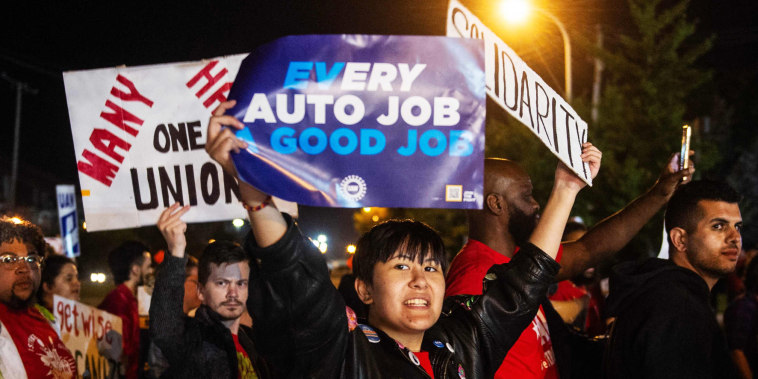Massive Autoworkers Strike Shakes Big Three Auto Plants, Sending Shockwaves Through Industry
In a stunning turn of events, the automotive industry has been thrown into disarray as thousands of autoworkers from the Big Three auto plants have embarked on an unprecedented strike. With production lines grinding to a halt, the strike has sent shockwaves through the industry, leaving manufacturers, suppliers, and consumers on edge. This article delves into the reasons behind the strike, its potential impact, and the demands of the autoworkers.
1. The Spark that Ignited the Fire:
The strike, which has brought production at major auto plants to a standstill, was triggered by a culmination of long-standing grievances faced by autoworkers. Issues such as stagnant wages, unfair working conditions, and the increasing use of temporary workers have fueled discontent among the workforce. Frustrated by the lack of progress in negotiations, the autoworkers have taken a bold step to demand change.
2. Paralyzed Production Lines:
With the strike in full swing, the Big Three auto plants, namely General Motors, Ford, and Chrysler, have been left paralyzed. The absence of skilled workers has brought assembly lines to a screeching halt, causing a ripple effect throughout the industry. Suppliers, who heavily rely on these plants, are also feeling the pinch, with many facing disruptions in their own operations. The strike’s impact is not limited to the United States, as global supply chains are intricately linked to these auto giants.
3. Economic Fallout:
The strike’s economic consequences are far-reaching. The automotive industry is a vital pillar of the American economy, contributing significantly to employment and GDP. With the strike disrupting production, economists fear a potential slowdown in economic growth. Furthermore, the strike’s impact extends beyond the industry itself, affecting related sectors such as logistics, transportation, and even local businesses that rely on autoworkers’ spending power.
4. Demands and Negotiations:
The autoworkers’ demands are clear: fair wages, improved working conditions, and job security. Negotiations between the United Auto Workers (UAW) union and the Big Three automakers have been ongoing, but progress has been slow. The strike serves as a powerful message, highlighting the urgency for both parties to find common ground and address the concerns of the workforce. As the strike continues, the pressure mounts on all stakeholders to reach a resolution that benefits both the autoworkers and the industry as a whole.
The autoworkers’ strike has sent shockwaves through the automotive industry, leaving the Big Three auto plants paralyzed and raising concerns about the broader economic impact. As negotiations intensify, the industry holds its breath, hoping for a swift resolution that addresses the grievances of the autoworkers while ensuring the stability and growth of the sector. The outcome of this strike will undoubtedly shape the future of the automotive industry and set a precedent for labor relations in the years to come.







